Why Buy Osphos 51 mg/ml For Horses
Indications for use:
Osphos 51 Mg/Ml – For the alleviation of clinical forelimb lameness associated with the bone resorptive processes of the distal sesamoid (navicular bone) in adult horses.
Contraindications:
- Do not administer intravenously.
- Do not administer to horses less than 4 years of age, due to the absence of data regarding use in growing animals.
- Do not administer to horses with impaired renal function.
- Do not use in cases of known hypersensitivity to the active substance or to any of the excipients.
Special precautions for use in animals:
Use caution when administering bisphosphonates to horses with conditions affecting mineral or electrolyte homeostasis, e.g. hyperkalaemic periodic paralysis, hypocalcaemia.
Special precautions to be taken by the person administering the veterinary medicinal product to animals
Accidental self-injection of this product may increase the risk of obstructed labour in pregnant women and affect fertility in men.
Care should be taken when handling the product to avoid self-injection.
In case of accidental self-injection, seek medical advice immediately and show the package leaflet or the label to the physician.
Route of administration
OSPHOS is administered at 1.8 mg/kg by intramuscular injection up to a maximum dose of 900 mg per horse (one vial). Divide the total volume evenly into three separate injection sites. Discard unused vial contents. OSPHOS is provided in a single use vial and does not contain a preservative.
If there is no response to initial therapy, the horse should be re-evaluated. For horses that initially respond to OSPHOS but do not maintain their clinical improvement for 6 months, OSPHOS may be re-administered at 3 to 6 month intervals based on recurrence of clinical signs. For horses that respond to OSPHOS and maintain clinical improvement for 6 months, OSPHOS should be re-administered after clinical signs recur.
Results
In clinical trials, the success rates were 74.7% for horses treated with OSPHOS and 3.3% for horses treated with saline placebo. The difference in success rates is significant (p-value=0.0028). A horse was considered a treatment success if the lameness grade in the primarily affected limb improved by at least 1 AAEP grade and there was no worsening of lameness grade in the other forelimb on Day 56 post-treatment as compared to the pre-treatment assessment. Of the 86 horses treated with OSPHOS, 8 horses had an improvement of 3 lameness grades, 45 horses improved by 2 lameness grades and 16 horses improved by one lameness grade (raw data).
The clinical effectiveness of OSPHOS noted in the field trial was independent of any corrective shoeing or other therapies for navicular syndrome.
Clinical improvement is most evident at 2 months post-treatment. Of the horses that responded to treatment with OSPHOS in the field study, 65% maintained their level of improvement through the 6 month evaluation.
Side effects
In field studies, the most common side effects reported were signs of discomfort or nervousness, cramping, pawing and/or colic within 2 hours post-treatment (9% of horses treated: n=10). Eight out of ten of these horses had resolution of their clinical signs with 10 to 15 minutes of hand walking. In one horse, clinical signs resolved without hand walking. Only one experienced colic requiring treatment. That horse also developed hives and recovered after treatment with flunixin and dexamethasone.
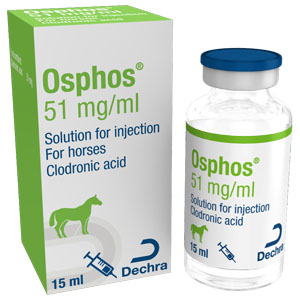
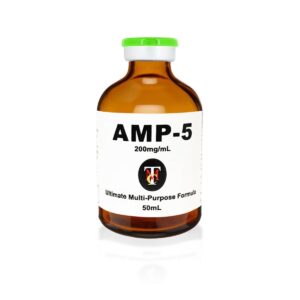
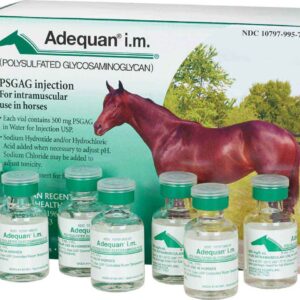
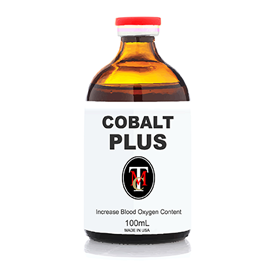
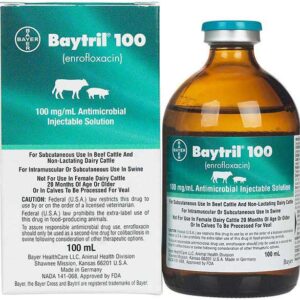
Reviews
There are no reviews yet.